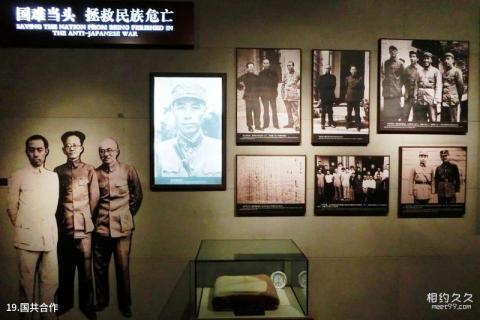
Introduction to cooperation between the Kuomintang and the Communist Party: On December 12, 1936, the "Xi'an Incident" occurred. As a representative of the Communist Party of China, Zhou Enlai went to Xi'an to mediate and promote a peaceful settlement of the Xi'an Incident, laying the foundation for the second cooperation between the Kuomintang and the Communist Party to resist Japan. In July 1937, after the Marco Polo Bridge Incident, Zhou Enlai drafted the "Declaration of the Central Committee of the Communist Party of China on Cooperation between the Kuomintang and the Communist Party", expounding on the cooperation between the Kuomintang and the Communist Party and the establishment of an anti-Japanese national united front. In December of the same year, he went to Wuhan and served as deputy secretary of the Yangtze River Bureau of the CPC Central Committee. In early 1938, the Political Department of the Military Commission of the Nationalist Government was established in Wuhan, showing a scene of cooperation and unity between the Kuomintang and the Communist Party in the war of resistance. The minister was Chen Cheng, a close confidant of Chiang Kai-shek, and the two deputy ministers were Zhou Enlai of the Communist Party of China and Huang Qixiang of the Third Party.
